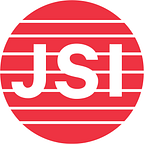Incentivizing Health Worker Performance Leads to Boost in Antenatal Care and Immunization
By Mihret Teshome of the Electronic Community Health Information Systems Scale-Up or Health Extension Program Improvement Project
Tewabech Tesfaye, a health extension worker, beams as she looks at her trophy at Yayeqea Health Post in Mirab Abaya Woreda. Community-based, frontline health extension workers like Tewabech play a critical role in bringing tailored services to Ethiopia’s large rural population. Historically, rural areas have had limited access to healthcare services, while outdated methods of data collection hindered the ability of the health system to serve these communities. But change is happening.
Innovations undertaken by the Government of Ethiopia through the Electronic Community Health Information System (eCHIS) Scale-Up for Health Extension Program Improvement project are improving access to services by changing how data are managed and used to enhance health worker performance. A JSI study on this approach found that in woredas (districts) where the project tested data-informed performance-based incentives for health extension workers and their health posts, a higher number of women accessed antenatal services, and a higher number of children received early childhood immunizations than those in comparison settings.
To test digital-enabled performance-based incentives, the project conducted a landscape analysis, using results to develop performance standards, evaluation approaches, and rewards. Health extension workers and program managers in the learning woredas were trained and mentored on the operation of the eCHIS, including how to use tablets and mobile applications that have digitized reporting capabilities and are loaded with counseling aids. The study used a mixed methods design to examine the outcomes in 102 health facilities in learning woredas and 99 facilities in comparison woredas.
Each health center established a performance verification team that used various eCHIS apps and the national eCHIS dashboard to assess performance across health posts and workers. Indicators included community use of family planning, antenatal care, growth monitoring and promotion, nutrition screening, and immunization services, model household, as well as appropriate stock supply of essential drugs.
Verification teams observed indicator increases across learning woredas. Antenatal care use in early pregnancy was three times higher in learning versus comparison woredas. Coverage of the BCG vaccine to prevent TB and other infections reached 80 percent in learning woredas, while remaining at 40 percent in comparisons. Growth monitoring in early childhood and measles vaccination also showed higher access rates in intervention woredas.
In December 2023, the project recognized 15 workers, 15 health posts, and 15 health centers for outstanding work to improve access to care using digital data and performance incentives over the course of the year. Tewabech recounts the award ceremony held for her and her peers, saying, “I’m proud to receive this recognition, but even prouder of my work with the community.”
Read the full study report for this approach.
